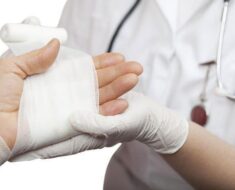Although women do have to deal with health issues relevant to scuba diving, this should not deter them from participating in this fun recreational sport. With adequate skills training, experience in the use of diving equipment, observance of precautionary measures and strict discipline; female divers will be able to put worrying thoughts aside and enjoy the dive. Below is a summary of common health problems women face; along with possible measures that can be implemented to address a particular medical condition and related diving equipment to keep women in top shape for diving.
Premenstrual syndrome. Women who have a history of succumbing to emotional disturbances or depression prior to menstruation should seek medical evaluation prior to the dive trip. If a woman suffers from PMS, it would be better to extend the surface intervals for repetitive dives or cut back the dive depths and bottom times at this particular stage of the menstrual cycle.
Menstrual period. Studies show that women are at greater risk of decompression sickness when they dive during their menstrual period. This is due to relevant hormonal changes that affect the ability of nitrogen gases to dissolve efficiently in the body. If experience tells you otherwise, it is still recommended that women reduce diving exposure or increase decompression stops when diving during their menstrual period.
Pregnancy (Before and After) . Due to the alteration of bodily fluids in the woman’s body during pregnancy, it is recommended to temporarily desist from any diving activity to prevent malformations and fetal injuries. After giving birth, women can engage in a few weeks of exercise to be fully prepared for the dive. Women can usually return to diving a month after delivery.
Lactation. For lactating women, dissolved inert gases in blood and tissues have not been confirmed to promote an adverse effect on breast milk quality. Nitrogen does not play any role in metabolism; therefore, nursing mothers need not worry about its possible toxicity.
Use of Oral Contraceptives. There is no clinical basis to support claims that oral contraceptives will have an adverse effect on the health of female recreational divers. In fact, the hormone progesterone has been found to limit the incidence of cell damage and tissue inflammation; where therefore its use is recommended to prevent accidents derived from inert gases dissolved in the body.
Diving Equipment Suggestion for Women Scuba Divers
There’s nothing like top-of-the-line, modern scuba equipment to keep pertinent reproductive issues off your mind during a dive. Get a premium fit in a wetsuit designed especially for a women’s body with the Aeris Rio 3/2 Suit. [http://www.scubasuppliers.com/site/1408308/product/60.0321.XX]; which guarantees adequate insulation, optimal protection and general comfort during the dive. The suit’s neoprene material is versatile for use in hot and cold water environments. This great piece of scuba gear is additionally designed to provide maximum flexibility of movement for that great underwater experience.





